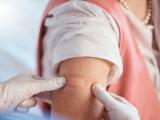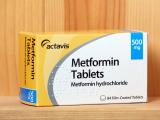More than a third of US adults said they trusted the Centers for Disease Control and Prevention (CDC) to provide quality health information during the COVID-19 pandemic, while a quarter trusted state and local health departments, and 10% said they had no trust at all in these agencies, according to the first nationally representative survey on the public's faith in sources of health information.
A team led by Harvard University researchers conducted an online and phone survey of 4,208 US adults from Feb 1 to 22, 2022, about their reasons for trust in federal, state, and local public health agencies amid the pandemic. The results were published yesterday in Health Affairs.
Half said CDC did well controlling COVID
Physicians and nurses received the highest ratings for the provision of general health information, with about half of respondents saying they trusted them "a great deal," at 54% and 48%, respectively. Other health professionals, such as scientists working on health issues and pharmacists, were also trusted, at a respective 44% and 40%.
National and federal institutions were the next most trusted source of general health information. A total of 39% of respondents said they trusted the American Cancer Society a great deal, while 37% trusted the CDC, and 33% cited the National Institutes of Health as a trusted source. About a quarter (26%) said they most trusted local authorities, 25% said state officials were trustworthy, and 10% said they trusted none of these sources.
When it came to COVID-19 information, 42% of those surveyed reported a great deal of trust in the CDC, and about a third said the same for their state (31%) or local (34%) public health department.
High levels of trust in the CDC weren't due to a belief that the agency had "done a good job" mitigating COVID-19 transmission (49%) but rather to beliefs that it followed scientifically valid research (94%), provided resources such as tests and vaccines (83%), and gave clear recommendations on ways to prevent infection (79%).
While respondents said they had "a great deal" of trust in federal agencies because of their scientific expertise, they found perceptions of hard work, compassionate policy, and provision of direct services more important at the state and local level.
High levels of trust in the CDC weren't due to a belief that the agency had "done a good job" mitigating COVID-19 transmission but rather to beliefs that it followed scientifically valid research, provided resources such as tests and vaccines, and gave clear recommendations on ways to prevent infection.
Participants who expressed lower trust tended to believe that public health recommendations were politically motivated or conflicting. The least trusting respondents, who had low trust in government as a whole, also were suspicious of corporate influence and what they viewed as public health restrictions that went "too far."
Public buy-in critical
The authors noted that trust is central to the public's willingness to receive and act on disease-mitigation recommendations.
"However, public trust in government and other major institutions across US society has been declining for decades, and the pandemic has raised concerns about trust in public health agencies in particular," they wrote. "Opportunities for misinformation to take root in the current social and traditional media environments raise concerns that trust will decline further."
They outlined steps to help shore up that trust. "Our findings suggest the need to support a robust federal, state, and local public health communications infrastructure; ensure agencies' authority to make science-based recommendations; and develop strategies for engaging different segments of the public," they wrote.
In a Harvard news release, lead author Gillian SteelFisher, PhD, deputy director of the Harvard Opinion Research Program, said "Emergency programs have been underfunded for decades, but these data make clear how important it is to ensure public health agencies have appropriate stockpiles, have authority to make decisions based on scientific information, and have a stronger communication infrastructure."




















